Our whole social environment seems to us to be filled with forces which really exist only in our own minds.
EMILE DURKHEIMA monomaniac is a sick person whose mentality is perfectly healthy in all respects but one; he has a single flaw, clearly localized. At times, for example, he has an unreasonable and absurd desire to drink or steal or use abusive language; but all his other acts and all his other thoughts are strictly correct.
More Emile Durkheim Quotes
-





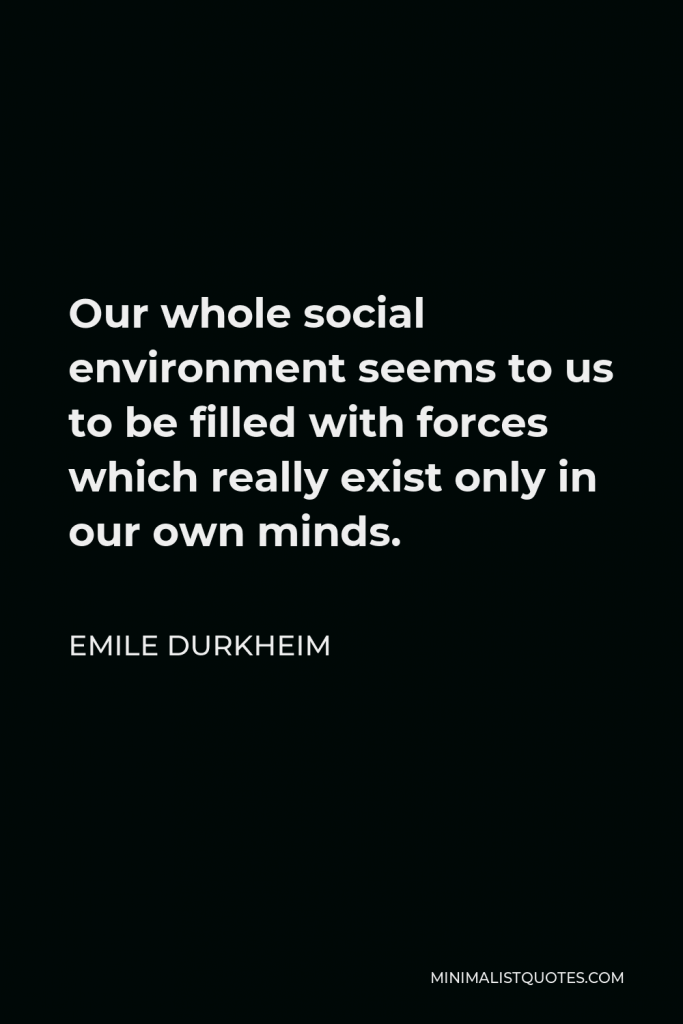

-







The term suicide is applied to all cases of death resulting directly or indirectly from a positive or negative act of the victim himself, which he knows will produce this result
EMILE DURKHEIM -







There is no sociology worthy of the name which does not possess a historical character.
EMILE DURKHEIM -







There is a collective as well as an individual humor inclining peoples to sadness or cheerfulness, making them see things in bright or somber lights. In fact, only society can pass a collective opinion on the value of human life; for this the individual is incompetent.
EMILE DURKHEIM -





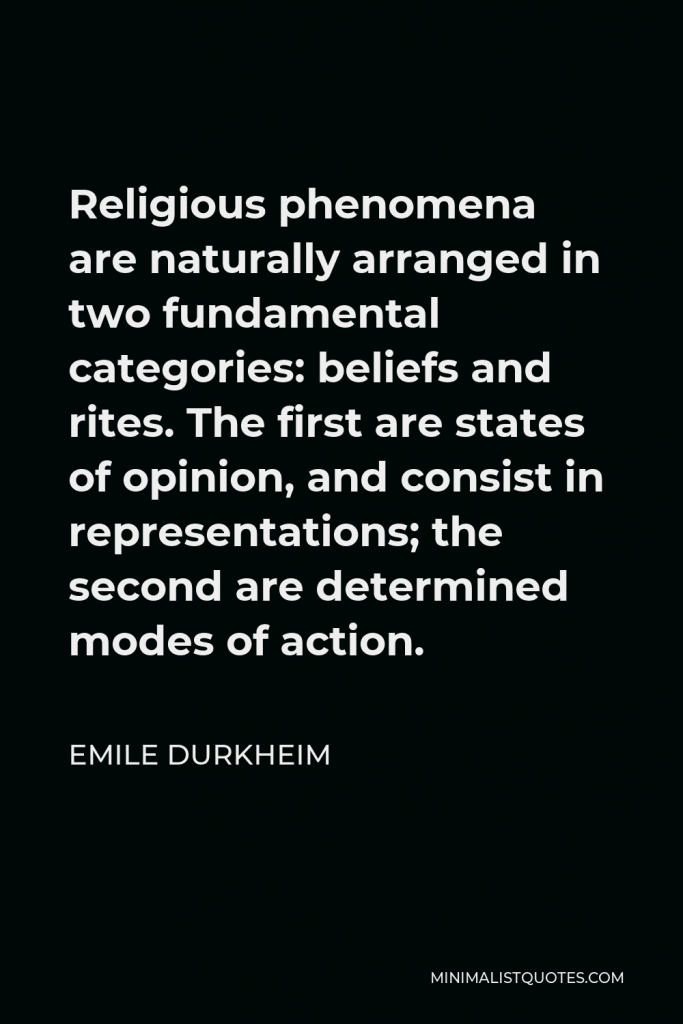

Religious phenomena are naturally arranged in two fundamental categories: beliefs and rites. The first are states of opinion, and consist in representations; the second are determined modes of action.
EMILE DURKHEIM -





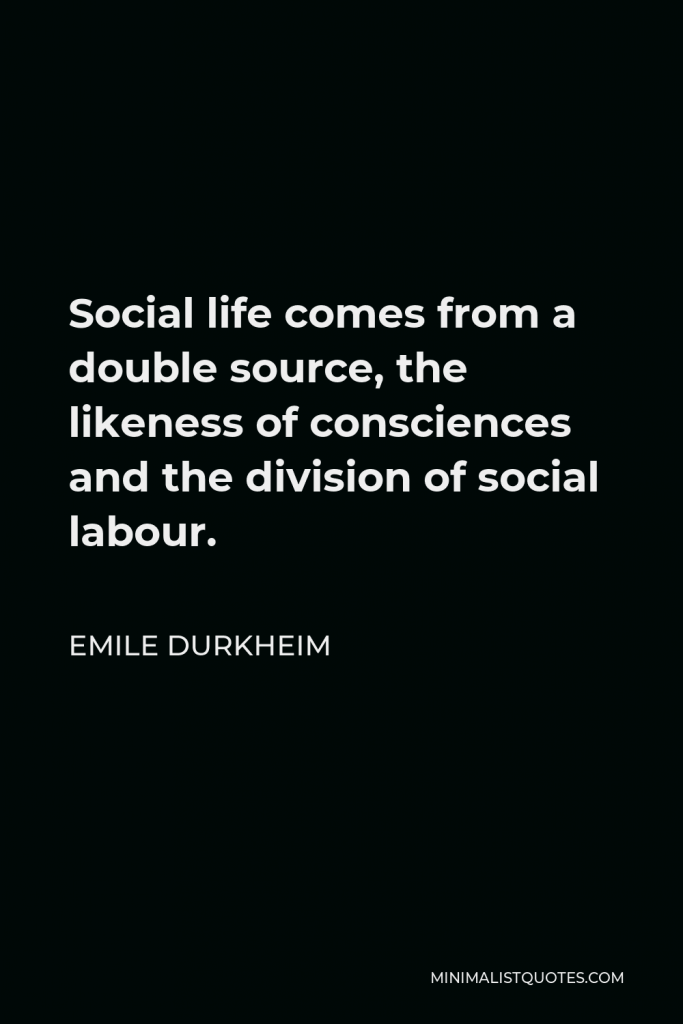

Social life comes from a double source, the likeness of consciences and the division of social labour.
EMILE DURKHEIM -





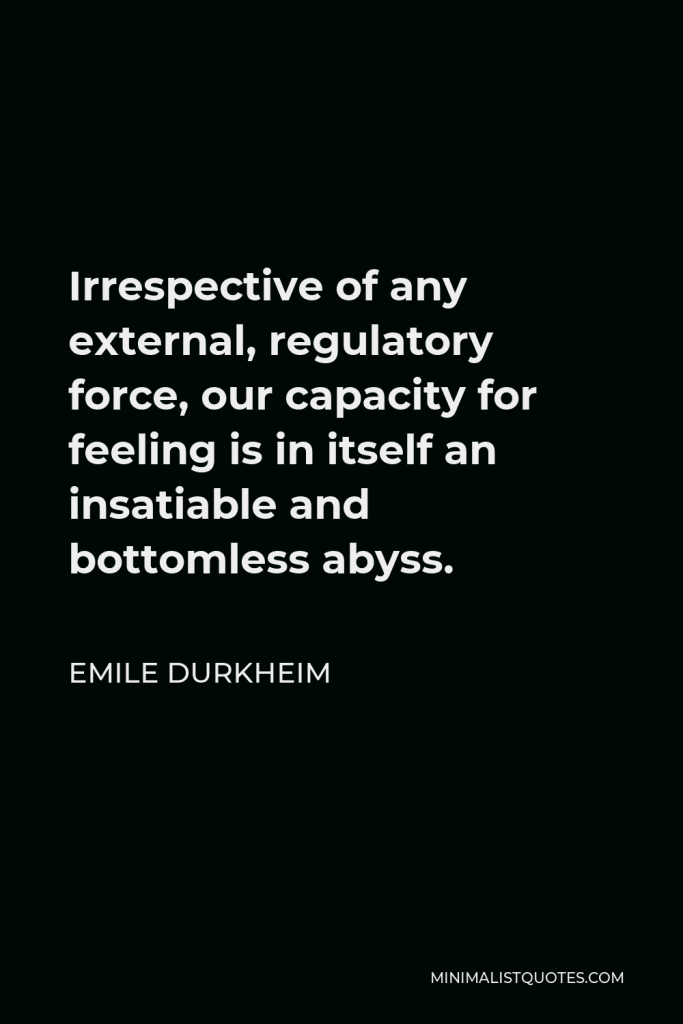

Irrespective of any external, regulatory force, our capacity for feeling is in itself an insatiable and bottomless abyss.
EMILE DURKHEIM -





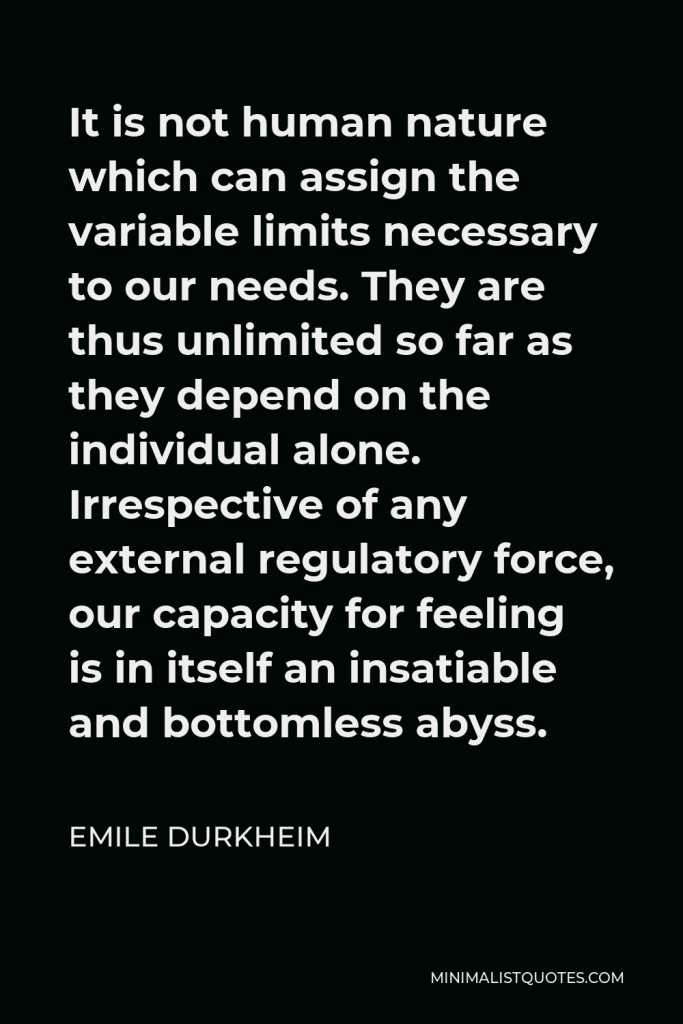

It is not human nature which can assign the variable limits necessary to our needs. They are thus unlimited so far as they depend on the individual alone. Irrespective of any external regulatory force, our capacity for feeling is in itself an insatiable and bottomless abyss.
EMILE DURKHEIM -







It is too great comfort which turns a man against himself. Life is most readily renounced at the time and among the classes where it is least harsh.
EMILE DURKHEIM -





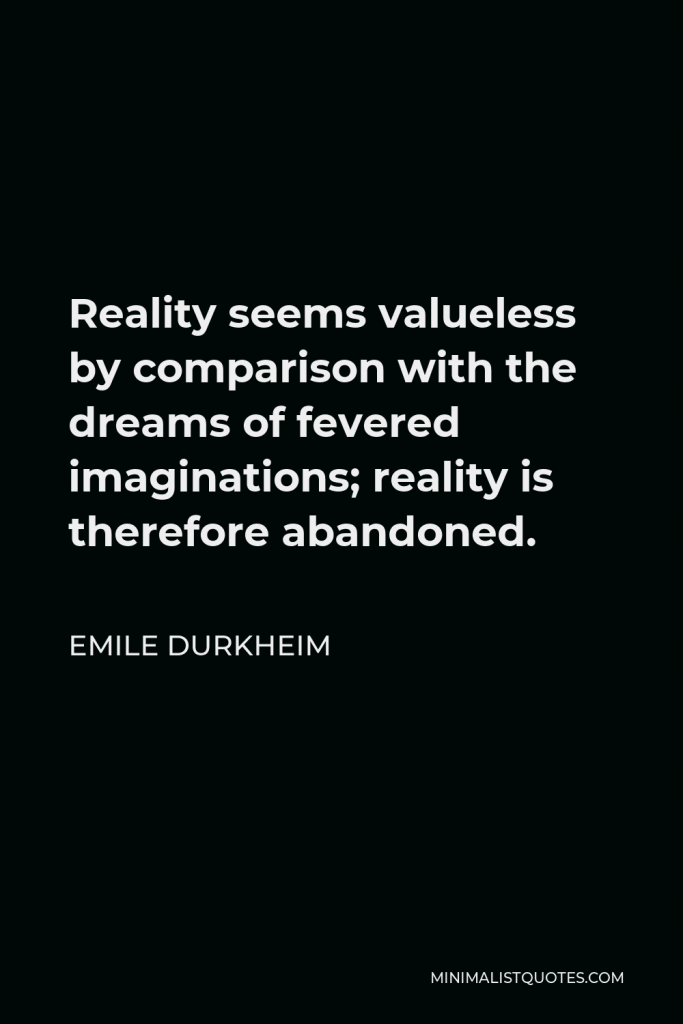

Reality seems valueless by comparison with the dreams of fevered imaginations; reality is therefore abandoned.
EMILE DURKHEIM -







It is only by historical analysis that we can discover what makes up man, since it is only in the course of history that he is formed.
EMILE DURKHEIM -







We do not condemn it because it is a crime, but it is a crime because we condemn it.
EMILE DURKHEIM -







Men have been obliged to make for themselves a notion of what religion is, long before the science of religions started its methodical comparisons.
EMILE DURKHEIM -





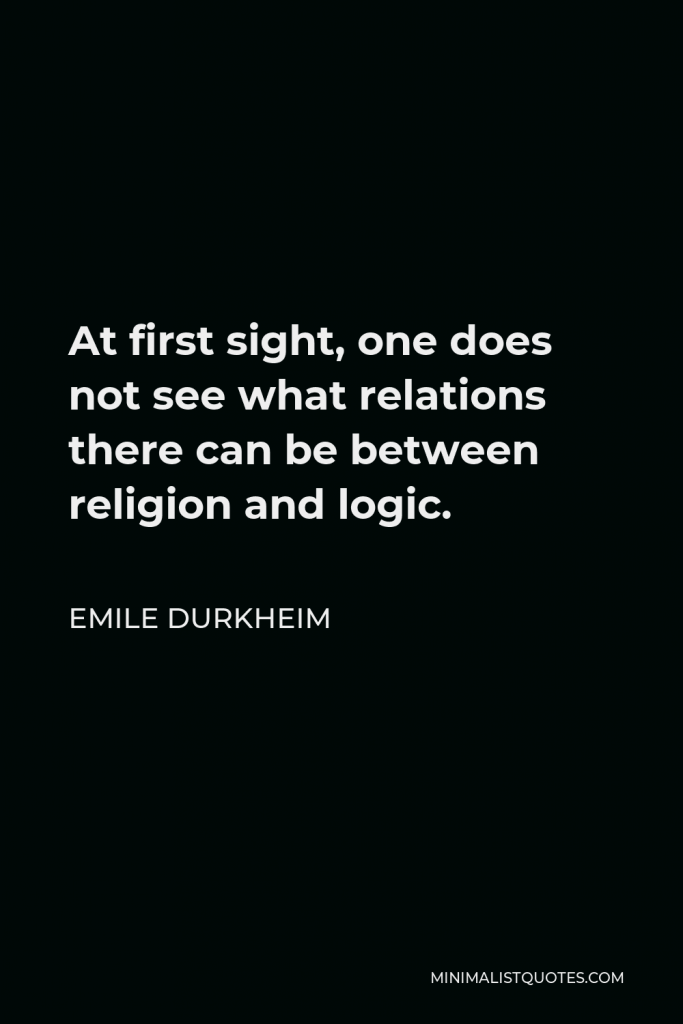

At first sight, one does not see what relations there can be between religion and logic.
EMILE DURKHEIM -







A monomaniac is a sick person whose mentality is perfectly healthy in all respects but one; he has a single flaw, clearly localized. At times, for example, he has an unreasonable and absurd desire to drink or steal or use abusive language; but all his other acts and all his other thoughts are strictly correct.
EMILE DURKHEIM -





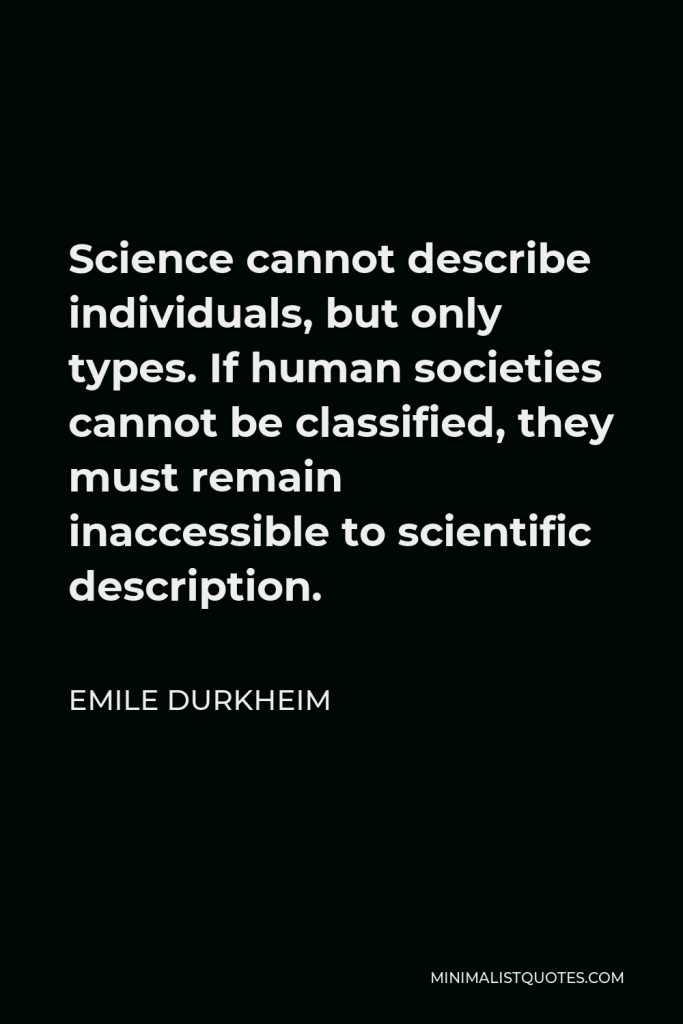

Science cannot describe individuals, but only types. If human societies cannot be classified, they must remain inaccessible to scientific description.
EMILE DURKHEIM







